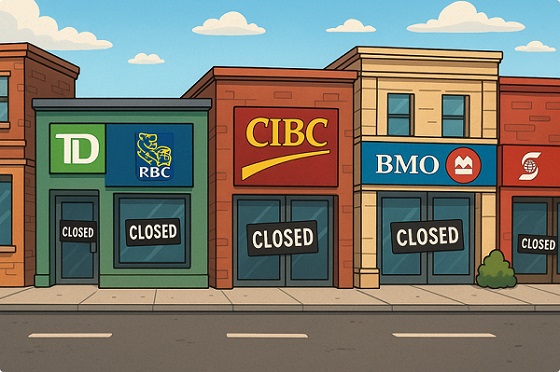Censorship Industrial Complex
A License to Censor? The Fierce Fight Over the GEC’s Renewal

|
What happens when an agency meant to protect Americans from foreign propaganda starts tiptoeing over the line into the realm of domestic censorship? Enter the Global Engagement Center (GEC), a charming creation of the US State Department that was originally tasked with combating foreign disinformation. It sounds like something out of a spy novel: shadowy entities sowing chaos through whisper campaigns and disinformation dumps. But now, the real drama lies in how this agency has extended its reach beyond foreign threats and into the murky waters of the internet’s free speech landscape.
Of course, the GEC would prefer to be seen as a benevolent referee, helping social media giants like Facebook and YouTube play the good guys in the battle against digital deception. In theory, this agency is all about countering Russian bots and Iranian trolls. But somehow, along the way, its mission stretched to a point where the average American scrolling through a feed can almost feel the government’s fingers tapping on their shoulder, cautioning them about what’s “trustworthy.” It’s no wonder people are starting to worry. “Protecting” Free Speech with Blacklists and Bans Let’s break down how the GEC manages to defend democracy in ways that look suspiciously undemocratic. The agency works directly with social media platforms, advising them on what narratives might be feeding the foreign propaganda machine. Sounds reasonable—until it doesn’t. The GEC has dipped into its federal piggy bank to fund initiatives creating online blacklists and flagging content for removal. Some say it’s about “maintaining integrity” online; others say it looks a lot like censorship on the taxpayer’s dime. To critics, this looks like the first few moves of a chess game where the GEC is lining up for a checkmate on free expression. And they’re not alone. Skeptics of the GEC’s approach argue that these actions open the door to a sanitized internet, where only approved opinions make the cut. Who gets to decide what’s misleading or manipulative? Turns out, it’s not entirely clear, and this vagueness is what has civil liberties watchdogs gnashing their teeth. Paul Nakasone: Former Spy, Current AI Board Member, and GEC’s Biggest Fan Amid the ruckus, the GEC does have a few high-profile cheerleaders. One of them is none other than Paul Nakasone, a former NSA Director who now sits on the board of OpenAI. He’s come out swinging in favor of the GEC, showering praise on its efforts to shield American audiences from outside influence. For someone who once helmed the NSA, Nakasone knows a thing or two about surveillance, and his endorsement feels like a tacit nod from the intelligence community itself. But even as he applauds the GEC, some are asking the obvious question: why is a former NSA chief, now positioned at the bleeding edge of AI technology, so invested in this government office’s future? Could it be that he sees a future where government-sponsored “truth” filters bleed into the algorithmic architecture of social media platforms? The GEC’s methods may have started with a noble purpose, but Nakasone’s involvement shines a light on the agency’s proximity to power and influence, making many wonder if the GEC is merely a cudgel for elites to enforce their narrative. Bipartisan Endorsement: The Ultimate Shield Then there’s the bipartisan protection the GEC enjoys, courtesy of Senators John Cornyn and Chris Murphy, the Republican-Democrat duo that co-parented the agency into existence back in 2016. In the world of American politics, finding anything both sides agree on is as rare as a unicorn, so when they do align, it’s usually worth a closer look. Cornyn and Murphy are now pushing for the GEC’s reauthorization, hoping to give it another seven-year lease on life. Their logic? Keep the GEC’s scope foreign-focused and off-limits when it comes to domestic politics. The proposal includes a “strict ban” on US political meddling and tighter financial oversight—measures meant to steer the GEC back toward its original, “noble” mission. Yet, those promises don’t seem to be allaying fears. After all, what constitutes meddling, exactly? And how far does “foreign-focused” go on the internet where “foreign” is about as easy to define as air? If there’s one thing Washington excels at, it’s drawing the line right where it’s convenient, then redrawing it when no one’s looking. The GEC’s Real Legacy: Democracy or Control? At its core, the GEC’s story isn’t one of pure villainy or virtue; it’s the all-too-common tale of mission creep. Born to protect, it evolved into a protector so zealous it could become the very thing it claimed to fight. In a landscape where free speech is already under constant siege, the GEC’s growth raises the age-old question: who watches the watchers? So, here we stand, with two powerful senators asking us to trust that the GEC’s next seven years won’t resemble the questionable track record of the last. Whether you see this as a necessary shield or a potential weapon against dissent, one thing is clear—the GEC’s presence in the digital ecosystem is likely to remain contentious, polarizing, and above all, inescapably tangled in the web of modern-day propaganda wars. The Global Engagement Center, with its sleek mission of unmasking foreign propaganda, has certainly racked up its share of victories abroad, unearthing disinformation from the usual suspects—Russia, China, and other state-sponsored actors. But back home, it’s a different story. While the GEC might like to see itself as an indispensable line of defense, a growing number of Americans see it as something altogether more insidious: a tool for quashing dissent under the shiny guise of “security.” The backlash isn’t just coming from the fringes; it’s led by Republican lawmakers who accuse the GEC of overstepping its mandate, straying from a mission to combat foreign influence and dabbling instead in something far more contentious: influencing American political discourse. Conservatives argue that the GEC has a cozy relationship with major social media platforms, where it’s allegedly advising them to tag and downrank content from right-leaning sources, all under the sanctified banner of “disinformation.” In a country already primed to erupt over issues of free speech, it’s an explosive allegation that’s landed the GEC in the crosshairs of national outrage. The Conservative Media Strikes Back Fed up and ready to push back, some of the biggest conservative media names have banded together with the state of Texas to launch a lawsuit against the Department of State. Platforms like The Daily Wire and The Federalist are taking aim at what they claim is a calculated attempt by the GEC to label their content as “disinformation,” a charge they argue has made them radioactive for advertisers and throttled their visibility on social media. Their argument is simple but searing: a federal agency is directly infringing on the First Amendment by blocking or burying conservative viewpoints in the very same channels it was established to keep open. This accusation has given conservatives a rallying cry, a David-vs-Goliath scenario where state-backed censors go after political speech under the flimsiest pretexts. Leading the legal crusade is Texas Attorney General Ken Paxton, who’s never one to mince words. Paxton has openly accused the GEC of being on a crusade of its own—one aimed not at safeguarding democracy, but at suffocating it. In Paxton’s view, the GEC has gone rogue, turning from a shield against foreign interference to a battering ram against American freedoms. Enter Congress: The Great Reassessment The uproar has made its way to Capitol Hill, where figures like Rep. Darrell Issa are pounding the drum for a major reassessment of the GEC’s practices. Issa, along with a cadre of similarly concerned lawmakers, has raised the alarm about how far the GEC’s operations have expanded. It’s one thing to combat the well-oiled disinformation machines of Moscow or Beijing. But it’s something else entirely to be monitoring, blacklisting, and deplatforming opinions within US borders under the same disinformation protocols. For Issa, this isn’t just mission creep; it’s an outright defiance of the GEC’s mandate. The agency, he contends, has blurred the line between legitimate counter-disinformation efforts and outright censorship, especially when that censorship just so happens to lean in one political direction. Issa and others argue that under the pretext of fighting foreign influence, the GEC is developing an appetite for policing thought—a role Congress never intended it to fill. Reform or Dismantle: The Fight Over the GEC’s Future And now, Washington is embroiled in a growing debate over what to do with the GEC. On one side are those who argue that the center just needs a tighter leash, and a few accountability measures to ensure it sticks to foreign threats and foreign threats only. On the other side are those who say the GEC’s existence is a danger to American principles — perhaps a well-intentioned experiment gone horribly wrong. They’re pushing for its complete dismantling, arguing that no amount of reform can protect an agency with such sweeping power from abusing it. In an ironic twist, the very tools created to protect democracy now stand accused of eroding it, launching a bitter tug-of-war over the American ideal of free speech versus the unquantifiable need to “protect” citizens from supposedly dangerous ideas. Are we safer for it? Or are we on a slow slide into a digital age where the government, deciding what counts as legitimate speech, becomes the very propagandist it claims to fight? At the least, the GEC seems to have lost its way, now accused of extending its mission to target domestic media—particularly conservative voices. Its partnerships with organizations like the Global Disinformation Index (GDI) have turned into a flashpoint for accusations of bias, with critics arguing that these alliances are driving the GEC’s work right into partisan territory. The GDI, a non-profit that presents itself as an impartial watchdog against misinformation, has its own critics, many of whom argue that its “disinformation” classifications are less about protecting the public and more about ensuring the “right” voices dominate the information landscape. Conservative media outlets have consistently found themselves on the wrong end of these classifications, flagged as threats to the sanctity of truth while more progressive-leaning sources, somehow, skate by. This raises questions about how these ostensibly neutral organizations are choosing their targets and how much influence the government-backed GEC has on these classifications. An Ethical Tug-of-War: Security, Truth, or Free Speech? As the debate heats up over the GEC’s impending renewal, we’re not just talking about a procedural rubber stamp. The reauthorization of the GEC is emerging as a proxy battle over far deeper questions: What role should the government play in policing information? And where is the line between safeguarding the public and controlling it? On one hand, there’s the argument that a body like the GEC is essential for a world where foreign states meddle with domestic politics through armies of bots and fake accounts. Without it, we’re told, Americans would be defenseless against the unrelenting tidal wave of foreign-sponsored fake news designed to sow chaos and division. Yet, that same narrative has an underbelly—a creeping encroachment on civil liberties, a kind of censorship wearing the costume of patriotism, where political biases steer the GEC’s focus. Congress at a Crossroads: To Renew, Reform, or Repeal? Congress now faces a critical decision: Do they rubber-stamp the GEC for another seven years and trust that reforms and restrictions can keep it in check? Or is it time to dismantle a mechanism that critics argue is increasingly indistinguishable from the very disinformation campaigns it claims to fight? Senators are debating an array of reforms, from tighter financial oversight to strict prohibitions on domestic content moderation. But skeptics aren’t convinced that a few added layers of oversight will suffice; the GEC’s history suggests that mission creep may be inevitable, and with it, the erosion of free expression. If the GEC’s renewal goes through with little structural change, the implications will reverberate far beyond Washington. It could set a precedent where government-sanctioned “disinformation” monitoring becomes normalized as part of the American media landscape, allowing those in power to define and punish “disinformation” with little accountability. The potential for abuse here is staggering. Setting Precedents for a Digital Battlefield The GEC saga is a window into the heart of a much larger debate over information warfare and the role of government in a digital age. If the GEC continues to exercise its authority as both referee and player in the information space, it could pave the way for similar agencies to wield censorship as an arm of policy. We might soon find ourselves living in a digital landscape where what’s considered “misinformation” conveniently aligns with what’s politically inconvenient for those in power. Ultimately, the GEC’s future will set the tone for how the US balances national security with its commitment to free speech. As the Senate weighs its options, the stakes couldn’t be higher. This decision will define the boundaries of governmental influence over the public’s access to information, shaping the next chapter of American engagement in the digital world. The choice to renew, reform, or repeal the GEC is no small moment—it’s a defining one, with repercussions for every American’s right to think, speak, and decide for themselves what is truth and what is manipulation. |
|
|
|
Thank you for considering a contribution. Each donation not only supports our operations but also strengthens our efforts to challenge injustices and advocate for those who cannot speak out.
|
Banks
Debanking Is Real, And It’s Coming For You

From the Frontier Centre for Public Policy
Marco Navarro-Genie warns that debanking is turning into Ottawa’s weapon of choice to silence dissent, and only the provinces can step in to protect Canadians.
Disagree with the establishment and you risk losing your bank account
What looked like a narrow, post-convoy overreach has morphed into something much broader—and far more disturbing. Debanking isn’t a policy misfire. It’s turning into a systemic method of silencing dissent—not just in Canada, but across the Western world.
Across Canada, the U.S. and the U.K., people are being cut off from basic financial services not because they’ve broken any laws, but because they hold views or support causes the establishment disfavors. When I contacted Eva Chipiuk after RBC quietly shut down her account, she confirmed what others had only whispered: this is happening to a lot of people.
This abusive form of financial blacklisting is deep, deliberate and dangerous. In the U.K., Nigel Farage, leader of Reform UK and no stranger to controversy, was debanked under the fig leaf of financial justification. Internal memos later revealed the real reason: he was deemed a reputational risk. Cue the backlash, and by 2025, the bank was forced into a settlement complete with an apology and compensation. But the message had already been sent.
That message didn’t stay confined to Britain. And let’s not pretend it’s just private institutions playing favourites. Even in Alberta—where one might hope for a little more institutional backbone—Tamara Lich was denied an appointment to open an account at ATB Financial. That’s Alberta’s own Crown bank. If you think provincial ownership protects citizens from political interference, think again.
Fortunately, not every institution has lost its nerve. Bow Valley Credit Union, a smaller but principled operation, has taken a clear stance: it won’t debank Albertans over their political views or affiliations. In an era of bureaucratic cowardice, Bow Valley is acting like a credit union should: protective of its members and refreshingly unapologetic about it.
South of the border, things are shifting. On Aug. 7, 2025, U.S. President Donald Trump signed an executive order titled “Guaranteeing Fair Banking for All Americans.” The order prohibits financial institutions from denying service based on political affiliation, religion or other lawful activity. It also instructs U.S. regulators to scrap the squishy concept of “reputational risk”—the bureaucratic smoke screen used to justify debanking—and mandates a review of past decisions. Cases involving ideological bias must now be referred to the Department of Justice.
This isn’t just paperwork. It’s a blunt declaration: access to banking is a civil right. From now on, in the U.S., politically motivated debanking comes with consequences.
Of course, it’s not perfect. Critics were quick to notice that the order conveniently omits platforms like PayPal and other payment processors—companies that have been quietly normalizing debanking for over a decade. These are the folks who love vague “acceptable use” policies and ideological red lines that shift with the political winds. Their absence from the order raises more than a few eyebrows.
And the same goes for another set of financial gatekeepers hiding in plain sight. Credit card networks like Visa, American Express and Mastercard have become powerful, unaccountable referees, denying service to individuals and organizations labelled “controversial” for reasons that often boil down to politics.
If these players aren’t explicitly reined in, banks might play by the new rules while the rest of the financial ecosystem keeps enforcing ideological conformity by other means.
If access to money is a civil right, then that right must be protected across the entire payments system—not just at your local branch.
While the U.S. is attempting to shield its citizens from ideological discrimination, there is a noticeable silence in Canada. Not a word of concern from the government benches—or the opposition. The political class is united, apparently, in its indifference.
If Ottawa won’t act, provinces must. That makes things especially urgent for Alberta and Saskatchewan. These are the provinces where dissent from Ottawa’s policies is most common—and where citizens are most likely to face politically motivated financial retaliation.
But they’re not powerless. Both provinces boast robust credit union systems. Alberta even owns ATB Financial, a Crown bank originally created to protect Albertans from central Canadian interference. But ownership without political will is just branding.
If Alberta and Saskatchewan are serious about defending civil liberties, they should act now. They can legislate protections that prohibit financial blacklisting based on political affiliation or lawful advocacy. They can require due process before any account is frozen. They can strip “reputational risk” from the rulebooks and make it clear to Ottawa: using banks to punish dissenters won’t fly here.
Because once governments—or corporations doing their bidding—can cut off your access to money for holding the wrong opinion, democracy isn’t just threatened.
It’s already broken.
Marco Navarro-Genie is vice-president of research at the Frontier Centre for Public Policy and co-author, with Barry Cooper, of Canada’s COVID: The Story of a Pandemic Moral Panic (2023).
Censorship Industrial Complex
Freedom of speech under threat on university campuses in Canada

From the Fraser Institute
By Michael Zwaagstra and Matthew D. Mitchell
Obviously, when students feel that their grades are at risk, they will be far less likely to express their genuine opinions or even ask questions during class discussions. Not only does this make classes less interesting, it also undermines the entire purpose of a university education.
Universities should be places where all ideas are welcomed and explored. In many Canadian university classrooms, however, only the “correct” viewpoint is heard.
According to a new survey (conducted by Leger and published by the Fraser Institute) of 1,200 Canadian university students and recent graduates, politically left-of-centre students were far more likely than their right-of-centre classmates to report that their views were welcomed and encouraged in class.
For example, 83 per cent of right-leaning students believe that professors advocate a left-of-centre view—and 45 per cent of left-leaning students agree with them.
Forty-two per cent of right-leaning students say they experienced a university classroom environment that limited discussion and questions on controversial topics to only one side of the argument. In contrast, only 29 per cent of left-leaning students felt the same way.
To make matters worse, 50 per cent of right-leaning students said they sometimes felt uncomfortable expressing their opinions due to the views of the professors leading the class. Only 36 per cent of left-leaning students reported the same experience.
Interestingly, when asked whether there was a “safe” point of view on controversial topics in university classes, a majority from both groups answered “yes” with little difference between right-leaning students (58 per cent) and left-leaning students (51 per cent).
A significant number of right-leaning students (37 per cent) also said they feared formal consequences for expressing honest thoughts, opinions or even asking questions in their classes. Among right-leaning students who expressed this concern, 74 per cent feared their professors would lower their grades for expressing the “wrong” opinion in class.
Obviously, when students feel that their grades are at risk, they will be far less likely to express their genuine opinions or even ask questions during class discussions. Not only does this make classes less interesting, it also undermines the entire purpose of a university education.
Other studies also reveal the politically one-sided nature of university campuses. For example, a 2022 survey published by the Macdonald-Laurier Institute found that 88 per cent of Canadian university professors vote for parties of the left and only 9 per cent support parties on the right. No wonder students feel their class discussions are consistently one-sided.
Similarly, a 2024 survey published by Heterodox Academy and College Plus found that more than half of students were reluctant to discuss certain issues such as the current Israel/Hamas conflict and transgender identity, and nearly half were reluctant to even broach the subject of politics. More alarmingly, a majority of students favoured limiting free expression on campus.
While many university professors are quick to describe themselves as strong supporters of diversity, this does not seem to include diversity of thought. A truly diverse campus would welcome a variety of intellectual perspectives in the spirit of open and scholarly debate. A campus where everyone looks different but thinks the same is not meaningfully diverse. As economist and philosopher John Stuart Mill argued many years ago, we are all impoverished when we silence one perspective.
It’s concerning that most students feel there’s a “safe” political view on controversial topics, particularly when students who hold a minority viewpoint feel the least safe expressing their views.
Of course, things won’t change overnight. But the first step to dealing with a problem is to admit that you have one. In that light, university administrators, professors and politicians should acknowledge that the current lack of viewpoint diversity on campus is a serious problem for all Canadians. Democracies function best when people freely express, and vigorously debate, competing ideas. As institutions of higher learning, universities should exemplify what free and open discussion looks like.
While there’s nothing wrong with professors holding political views and sharing those views with their students, they should not restrict free and open debate in their classrooms. This means ensuring that all students, including those whose opinions are in the minority, are guaranteed the right to share their views without fear of reprisal.

Matthew D. Mitchell
-

 Censorship Industrial Complex14 hours ago
Censorship Industrial Complex14 hours agoFreedom of speech under threat on university campuses in Canada
-

 Alberta9 hours ago
Alberta9 hours agoOttawa’s destructive federal energy policies and Premier Danielle Smith’s three part solution
-

 Business14 hours ago
Business14 hours agoCarney engaging in Orwellian doublethink with federal budget rhetoric
-

 Energy14 hours ago
Energy14 hours agoCanada’s LNG breakthrough must be just the beginning
-

 Alberta10 hours ago
Alberta10 hours agoIs Alberta getting ripped off by Ottawa? The numbers say yes
-

 Business15 hours ago
Business15 hours agoCourt’s ‘Aboriginal title’ ruling further damages B.C.’s investment climate
-

 Agriculture8 hours ago
Agriculture8 hours agoIn the USA, Food Trumps Green Energy, Wind And Solar
-

 Business3 hours ago
Business3 hours agoManitoba Must Act Now To Develop Its Northern Ports





